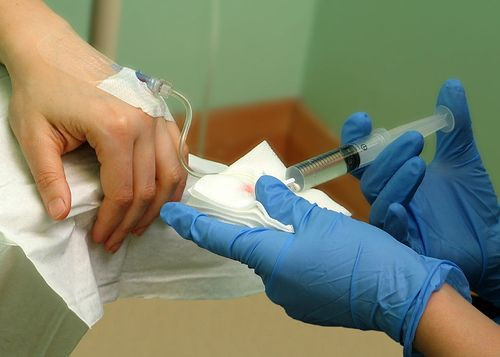Chemotherapy Drug Fights HIV Alongside Gene Treatment, Putting Patients Off Meds For Weeks

A novel approach to treating human immunodeficiency virus (HIV) could see a helping hand in the chemotherapy drug Cytoxan, as researchers from the group Sangamo BioSciences have shown increased fighting power in their gene-modification technique when Cytoxan is also present.
Antiretroviral drugs are currently the mainstay treatment method for HIV patients. A group of drugs divided into multiple classes, antiretrovirals generally work by preventing the virus from infecting future cells, while still preserving the patient’s immune system. The new treatment relies instead on manually altering the genes that HIV disrupts, and in combination with the chemotherapy drug, beefs up the body’s healthy immune cells, overpowering the virus.
The process works something like this: Scientists first withdraw a batch of cells from the patient, which they then take the DNA from to alter it. They’re looking for a specific gene, known as CCR5, that HIV disrupts in order to attack the body’s immune cells (also known as T-cells). By targeting the receptor for CCR5, scientists can prevent the virus from doing its damage. In turn, the cells don’t get infected. What they found was that introducing Cytoxan into this process actually makes it work better.
Two of the three patients treated with the highest dose of Cytoxan have remained off their antiretroviral drugs for weeks since first getting the new drug, Reuters reports. The patients still contain traces of HIV in their bloodstreams; however, the gradual infusion of Cytoxan, which reduces T-cell counts, allows the gene-altering treatment to incorporate into the body as the cells are growing back. When the drug is discontinued, the cells repopulate rapidly.
Ultimately, the new gene technique hopes to mimic the gene mutation that experts have observed in studies of CCR5, where both parents pass the mutation onto their children, making them more resistant to the virus. Current tests involve deactivated forms of HIV that can simulate the actual progression of treatment without giving the antibodies a chance to adapt to the virus.
Upcoming trials will assess the effectiveness of the treatment on a larger pool of patients, Sangamo CEO Edward Lanphier, told Reuters. "If those data are positive, plans are to move forward with pivotal trials with a pharma partner.”



























